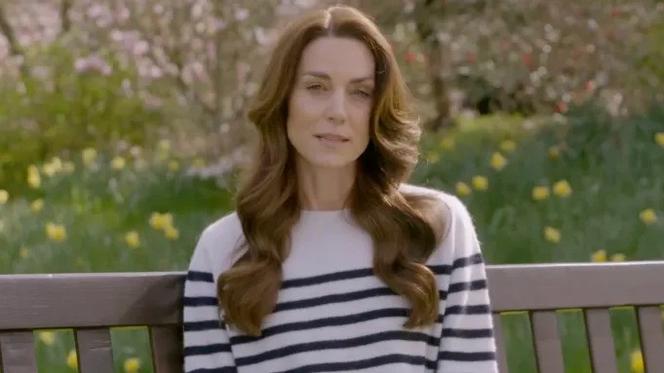


The news came as another blow for the British royal family on Friday, March 22. After wild rumors online for weeks, Kate Middleton, Princess of Wales, broke her silence to announce that she has cancer. In a video released first on the BBC on Friday evening, the 42-year-old mother of three (George, 10, Charlotte, 8, and Louis, 5) explained that she had begun preventative chemotherapy. She said she felt "well and getting stronger every day," but needed "some time, space, and privacy" while she completes her treatment.
In January, her father-in-law King Charles III had also revealed that he had begun cancer treatment, diagnosed during prostate surgery. Since then, he has released written and video messages but has not made any public appearances on his doctors' advice. On Friday, after the princess's revelation, the monarch said he was "so proud of Catherine for her courage in speaking as she did."
Neither the King nor the Queen-to-be has said what kind of cancer they are suffering from. However, the fact that they have opened up about their diagnosis is already a small communications revolution: The British still don't know what Queen Elizabeth II suffered from before she passed away in September 2022.
In her video, the Princess of Wales explained that the cancer was diagnosed after she underwent "major abdominal surgery" in January. At the time, Kensington Palace, in charge of the Prince and Princess of Wales' communication, assured that the operation was not cancer-related – it was detected after the surgery and she began her chemotherapy treatment at the end of February. In January, in the absence of official messages or photos, the most far-fetched theories began to circulate online about the princess' possible disappearance. They were further fuelled when, at the end of February, her husband William canceled his attendance at a long-planned family event at the last minute.
The publication on UK Mother's Day, March 9, of a clumsily photoshopped picture of Kate Middleton surrounded by her children – officially edited by the princess herself – compounded the digital hysteria and caused the hashtag #KateGate to trend online. Major news agencies retracted the image because it had been manipulated. If the revelation of the Princess's cancer puts an end to the rumors, this frenzied media episode will have proved the extent to which the notoriety of the British royal family is considerable – and it bears little relation to its real constitutional powers, now largely symbolic.
You have 45.83% of this article left to read. The rest is for subscribers only.
